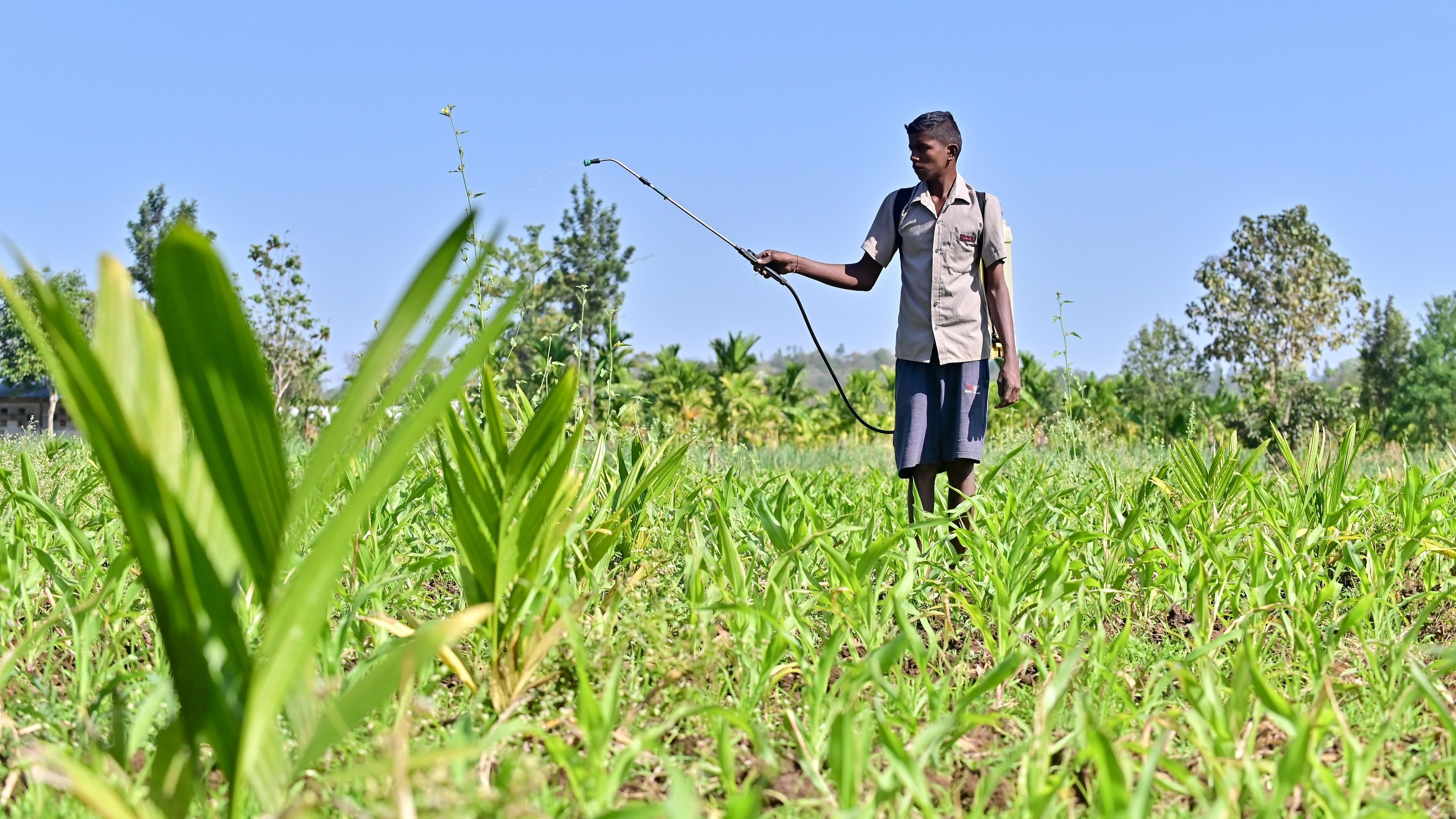
File Photo: A farmer spraying pesticides on groundnut and maize crops in Kondajji village, Davangere district.
Credit: DH Photo/Satish Badiger
Bengaluru-based innovation researchers from the Centre for Cellular and Molecular Platforms (C-CAMP) in collaboration with the researchers from the Institute Of Bioresources and Sustainable Development (IBSD), Imphal, have identified a biocontrol agent that can control the spread of Xanthomonas, a bacterial infection that affects over 400 different plant varieties, especially pomegranate, rice, and tomato.
The biocontrol agent, the researchers opined, could be the best alternative for the traditional chemical pesticide Streptocycline– a mixture of two antibiotics Streptomycin and Tetracycline that was banned by the Government of India citing concerns over Antimicrobial Resistance (AMR).
The biocontrol agent is a subactive specific extract from a secretion by a microorganism. The researchers leveraged a library of around 15,000 naturally occurring novel indigenous microbial isolates from North-East India to develop this technology.
“The technology is based on proven principles of a natural defense mechanism to stave off competition in nature. This aspect of microbial physiology has been the cornerstone for identifying antibacterial drugs. To develop this technology, custom antimicrobial assays using the field isolates of the pathogenic Xanthomonas sp. were developed and subjected to high-throughput screening tools to identify the best candidates. Through multiple rounds of primary and secondary screening, the best isolate was identified,” said Dr Paresh Patel, Lead, Scientific Operations, DIA Programme, C-CAMP.
While the farmers are now using various solutions from Streptomycin Sulfate to neem-based plant extracts, the efficacy of these products is of concern, the researchers said. “Following the ban, the farmers have opted for various techniques to combat the disease. However, there is no proven data on the efficacy of these products as compared to traditional pesticide Streptocycline. Many of them are general antimicrobials that are used to address bacterial infections in general,” said Dr Taslimarif Saiyed, Director and CEO, C-CAMP.
The product has been tested on the field and the results from the third-party data validation are also encouraging, Saiyed added.
The biocontrol agent is also safe to be used by the farmers since there are no chemical components involved. The solution is said to have tolerance to high temperatures and works in a wide pH range, the researchers claimed.